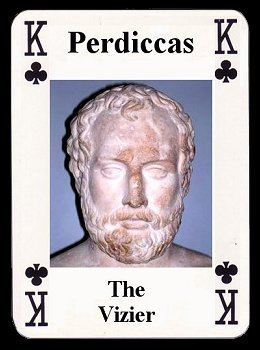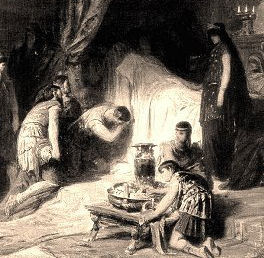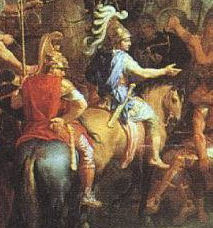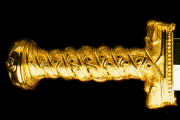


Some four or five years older than Alexander, Perdiccas was
a competent but by no means an outstanding soldier. However, he did
have one of the most varied careers of any of Alexander’s officers. He
commanded an infantry unit until the death of Darius, he was a royal
adjutant during the war in Bactria and he became a senior cavalry officer during the Indian campaign.
Perdiccas was clearly
a brave soldier, but he lacked any real aptitude for senior command in battle
and his appointment, although expedient, was almost certainly
temporary. By June 323 BC, Alexander was preparing for a new campaign
in Arabia and it is likely that Perdiccas would soon be replaced. No
one else in the high command appears to have had much enthusiasm for another
major war, and if Alexander were to die the chances were the plan would die
with him – as indeed it did. Perdiccas was well aware of this, giving
him a prime motive for killing Alexander.
When Alexander
died, Perdiccas started a civil war by claiming that the king had made him
his successor on his death bed. (From The Death of Alexander by the
seventeenth-century artist Karl Theodor von Piloty)
In October 324 BC, Alexander’s deputy Hephaestion fell ill and died. Hephaestion’s death unexpectedly left Perdiccas as
the highest ranking officer at Alexander’s court and he was not only
appointed commander of the cavalry but took over the function of vizier – the
equivalent of prime minister. Against all the odds, a common, average
soldier had found himself second-in-command of the largest empire the world
had ever known.









